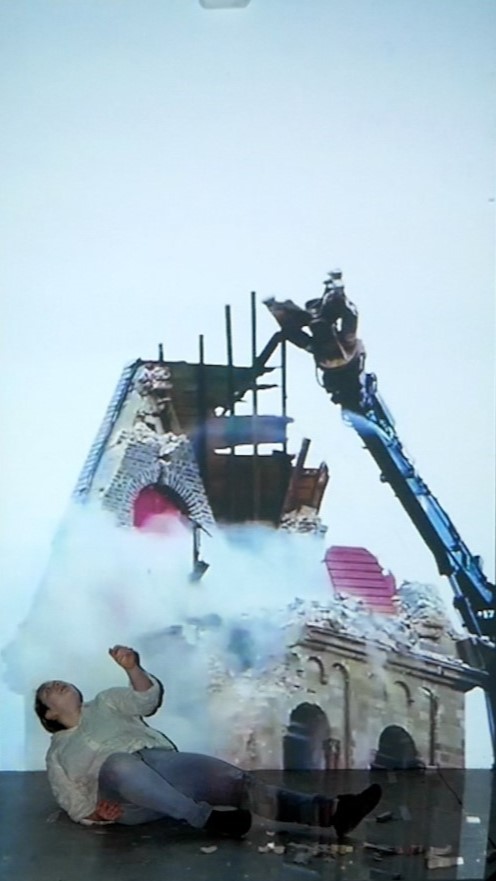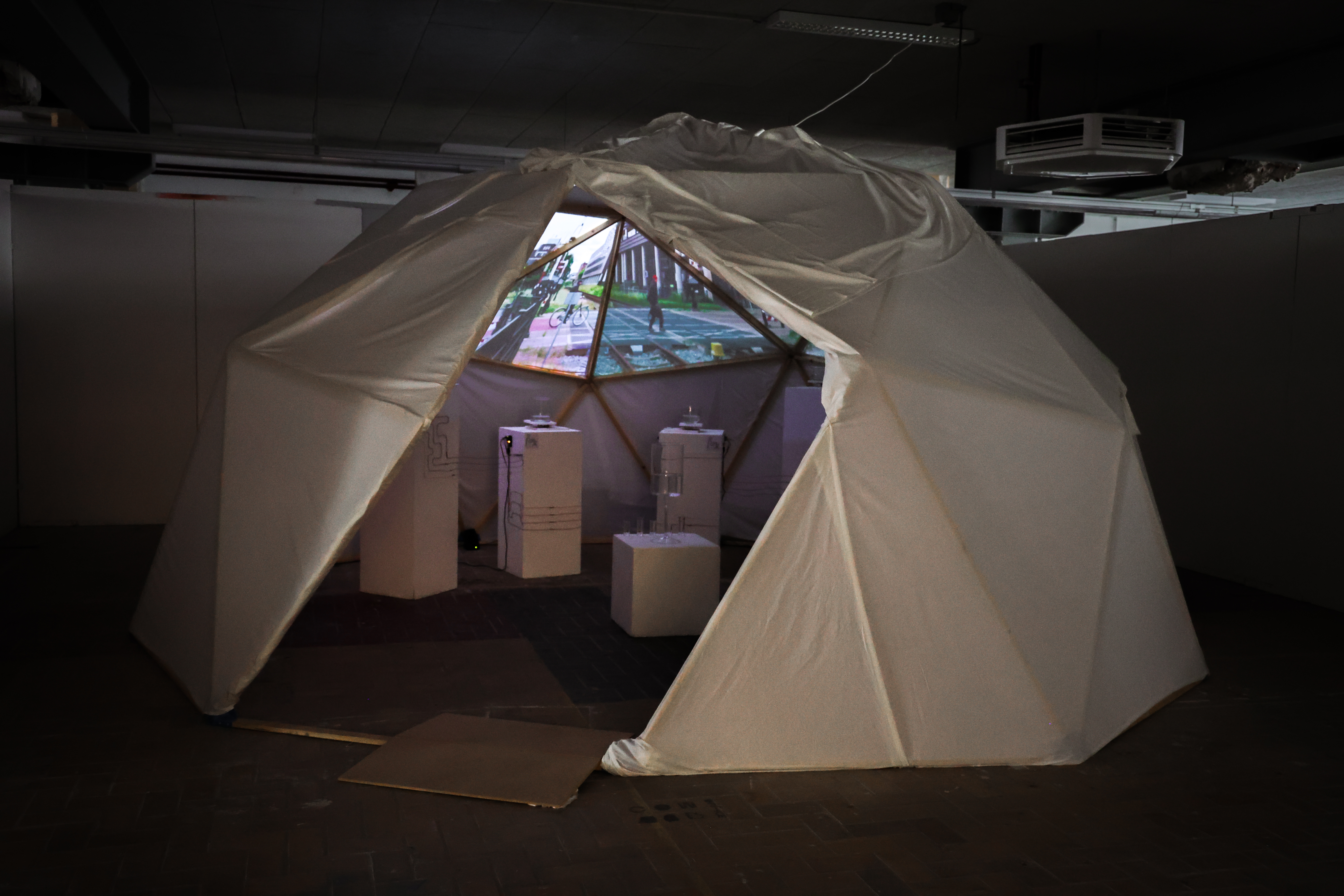"I am getting better at showing what moves me." Wiebke creates video installations with theatrical elements
- Design
Wiebke Schnapper (24) integrates her personal and political motivations into her art. How does this fourth-year Moving Image student at the AKI ArtEZ Academy of Art & Design in Enschede achieve this? She shares insights into her creative process. "Along the way, I gained the tools and courage to show what drives me."

Growing up in Bremen, Germany, Wiebke spent her free time juggling - a major passion - and had a deep love for the camera. "I always enjoyed taking photos and making films," she says. Initially, Wiebke pursued a degree in media and informatics in her homeland. "However, I missed the freedom and creativity," she explains. "That's why I switched to AKI."
“Freedom can be scary”
At the Moving Image course, Wiebke found the artistic and conceptual approach she was looking for, along with the freedom she craved. Though, at times, this freedom was intimidating. "The assignments are often very open-ended. You might only get instructions like, 'Use the techniques you've learned.' Initially, I found this challenging as I was used to more guidelines," she recounts. "It was also daunting to show my work to others; it felt vulnerable."
The course offers many ways to create visual art, helping me to genuinely convey what impacts me."
When is it appropriate to cry?
Gradually, Wiebke became better at expressing what moved her through her work. "The course offers many ways to create visual art, helping me to genuinely convey what impacts me," she shares. For example, when her aunt passed away, she was sad but didn't cry. This led to her installation, She Deserves My Tears. "I created a papier-mâché tear with a video projection, exploring when it is or isn't appropriate to cry according to social conventions. The installation invites others to listen to their feelings."
Environmental concerns
Wiebke's political engagement also shines through in her work. She talks about a village in Germany where a church was demolished for a lignite mine. "The villagers' interests - and the environment - were sacrificed for energy production. This deeply affected me." This inspired an installation using found footage of the church's demolition. "I created something new from these old images and used them as the backdrop for a theatrical performance, balancing a ceramic church spire on my head—my juggling skills came in handy!" This video was shown at the 809 Expo in Amsterdam.

Exploring boredom through slow cinema
Wiebke's thesis delves into something that fascinates her: boredom. "I believe boredom is a prerequisite for creative thoughts," she explains. "Can you induce boredom in others?" She researched the topic and created an 'essay film' using slow cinema techniques to evoke boredom in viewers. "The film consists of seven scenes, each about five minutes long, where not much happens."
Perception of time
Wiebke's graduation project, Like the flow of water, also explores the perception of time, specifically non-linear time ('crip time'). "I created a video and an installation - a dome with four glasses on pillars and a large vase of water in the center. Visitors can pour water from the vase into the glasses. Depending on the amount of water, the film speeds up or slows down," she describes, eagerly anticipating reactions to her installation.

Collaborating with others
Wiebke's installations and video projects often feature theatrical and performative elements, and she enjoys collaborating with other artists. "For instance, I created a video component for a theater performance in Hengelo with a classmate." Another example: "In our third year, we organized an exhibition as a class, creating a living space theme in a garage. Each student presented their work within this theme." Wiebke often takes on organizing roles in such projects, ensuring everything runs smoothly. "That suits me well. During my internship as a production assistant at De Haaien, I made sure everything went smoothly on shoot days."
Video artist in the theatre world
What are Wiebke's plans after graduation? "First, a nice vacation," she laughs. "Then I'll see what opportunities arise. Ultimately, I hope to work as a video artist in the theatre world, either in Germany or the Netherlands. But who knows where I'll end up!"
For prospective students, Wiebke advises: "Moving Image is a broad program. Submit various types of work to show your interests." Her tips for new students? "Be curious and experiment! Don't stay 'in your head,' but try different things. You'll discover what works and develop your style."
Learn more about the Moving Image bachelor's course


